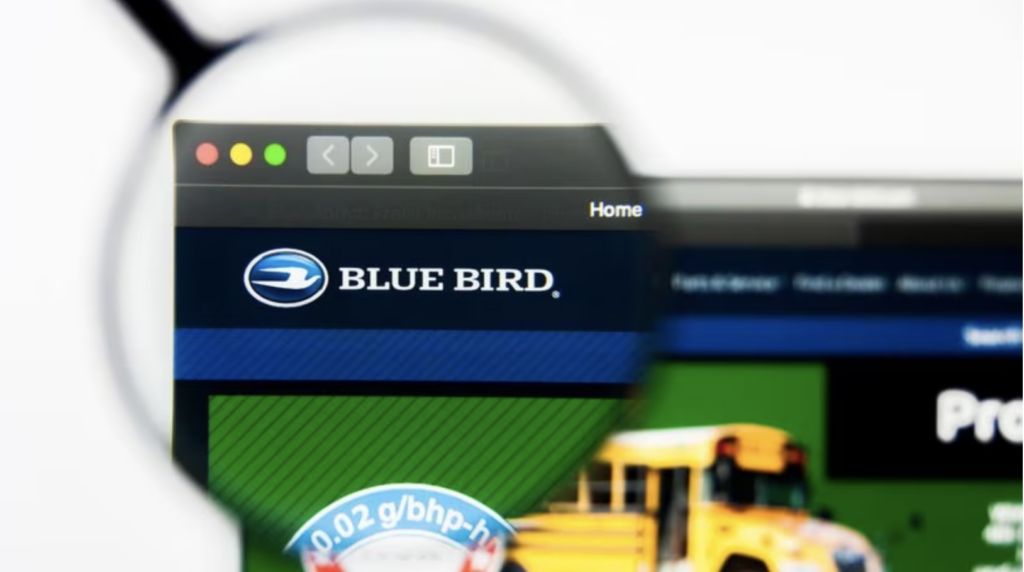
Credit: TNS
This story was originally reported by Michael E. Kanell in The Atlanta Journal-Constitution on May 18, 2023
Two human resources employees say they were fired for telling managers of bias in hiring, pay and drug testing
Two former Blue Bird employees have filed complaints with a federal agency charging the iconic bus manufacturer with racial discrimination.
The two women, both Black, have asked the Equal Employment Opportunity Commission to investigate their charges that they were recruited by the Fort Valley-based company to work in the human resources department, but were fired in recent months after they told their superiors in management of discriminatory practices in hiring, pay and drug testing.
Company officials did not respond to requests for comments this week from the Atlanta Journal-Constitution.
The complaints add another chapter to the stories of trouble at Blue Bird, the largest employer in Peach County. On May 11, wage workers voted for representation by the United Steel Workers. Supporters of the drive complained about pay and the treatment of workers.
Three days after the vote, Chief Executive Matthew Stevenson abruptly departed — “for personal reasons,” the company said — and was replaced by his predecessor. Three days after that, Stevenson was named president and chief executive of Kentucky-based Holley Inc., which designs, makes and sells a range of high-performance products for cars and trucks.
The unfolding events come as the bus maker is poised to ride a wave of potentially lucrative work as a beneficiary of funding from recently passed federal legislation aimed at fueling the electric vehicle industry.
Those measures included more than $10 billion for clean public transit and school buses nationally, much of it targeted to replacing existing school buses with zero-emission and low-emission models. Also, Georgia schools have been awarded $50.8 million to buy buses, while communities in the state are receiving $31 million to purchase transit buses, according to a release from the White House.
The women alleging discrimination were not wage workers and were not among the workers eligible to vote on unionization, so their firing had no direct relation to the union drive, said Tamara Holder, the attorney representing both. “But I think these complaints are parallel. I think there is a problem with the climate there.”
The AJC agreed not to use the names of the women filing complaints at this point because of their fear that they would be punished in their next job search. Complaints filed with the EEOC are not public, according to a spokeswoman for the agency. However, when the agency believes a complaint has merit and takes the matter to court, that action would be public, she said.
EEOC investigations can last months or years. After an investigation, the EEOC can sue on behalf of the women in federal court. As part of their complaint, the women have asked to be paid damages for the alleged harm suffered, but have specified no amount, according to Holder.
Black employees are the vast majority of the front-line, lesser-paid jobs at Blue Bird — 1,176 of the 1,463 wage workers, said attorney Holder, citing a count last fall by the company itself. Of the 227 salaried employees, 41 were Black.
The senior of the two women said that while problems at the company involved racist and misogynist behavior, the issues were even broader than that. She said she had been hired last June after a career of more than two decades in the field.
She had been lured away to head Blue Bird’s human resources, she said, from a company where she had been a vice president. “I was the only female African American at that level.”
From the start, things seemed wrong, she said.
Most executives worked from corporate offices in Macon, but she was placed in what she said was a rat-infested office at the Fort Valley manufacturing facility. “Then I had to purchase my own office supplies, my own printer, my own mouse and mouse pad.”
She was fired in October.
In her filing with the EEOC, she said she was fired for complaining about a workplace “rife with discrimination,” but also with health and other violations.
“They were not respectful of workers,” she told the AJC.
Among the allegations:
— Rules for drug testing were stricter for the wage workers, most of them Black, than for the salaried employees, most of them white,
— Women on the cleaning crew were routinely victims of sexual harassment by men who walked into bathrooms where they were cleaning and made lewd comments, unzipped their pants and urinated in their presence.
— Pay for new white workers was routinely set higher than for Black workers in similar positions.
— The company resisted efforts to provide accommodations — like chairs — for women workers in a late stage of pregnancy.
“It’s not okay what they have been doing,” said the less senior of the women, who said she was recruited from a job on the West Coast last summer to work in human resources at Blue Bird.